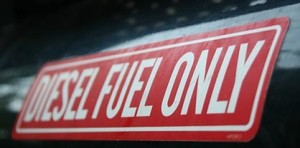Now that you’ve got the right hoses, make sure you’ve got the right diesel fuel
In gasoline and diesel engines, hoses and filters are essential pieces of equipment that enable the engine to do the work you need to get done. Fuel is the same way. You burn gasoline or diesel fuel to accomplish some kind of “work”, a means to an end. Think of it as the conversion of chemical energy (fuel) to mechanical energy (work).
Obviously it is essential to have the right hoses in place and to keep them in proper working order. Anyone who has ever had a vacuum leak in an engine knows the consequences of shoddy hoses. But to make engines run, it is equally essential to know what to expect from the fuel you use. Both gasoline and diesel fuels have undergone changes in the last ten years that make today’s fuels “not what they used to be”.
When it comes to researching fuel(s), there’s an overabundance of white noise out on the internet. Information overload!; so much so that consumers tune out, largely much to their detriment. That’s why we want to summarize the important things you need to know about changes in diesel fuel. Gasoline has also undergone big changes, but that’s a topic for another time when we have more space. For now, we’ll make it short and sweet about diesel. So here it goes.
Changes to diesel fuel
The biggest change in diesel fuel concerns the 2006 removal of the fuel sulfur to make “ultra-low sulfur diesel” fuel, abbreviated as ULSD. Removing the sulfur (done at the refinery) makes the diesel cleaner for the environment, lowering nasty sulfur exhaust gases that contribute to acid rain. But such a big change in the diesel fuel composition has several downsides for diesel users.
No more sulfur
First, taking the sulfur out makes the diesel drier and increases the wear on injectors and fuel pumps. Mechanics call this property ‘lubricity’ – the ability for the fuel to lubricate important parts. ULSD fuel is much less effective at lubricating injectors and fuel pumps . To combat this, refineries have tried to add lubricity additives to replace sulfer’s lubricating quality. But engine manufacturers are still noting that the diesel fuel is contributing to more wear than it used to.
Beware of diesel in the cold
Second, for diesel users in cold climates, ULSD has more gelling problems at higher temperatures. The chemical process that strips out the sulfur also changes the wax in the fuel making it more likely to fall out and gel at higher temperatures than before. For winter diesel users, this means a higher risk of diesel gelling and engine shutdown in cold weather. This problem is combated with the use of “cold flow” treatments that, when added to the diesel fuel, lower the temperature at which it starts to gel.
Bacteria and fungus finding a second home
Thirdly, sulfur in fuel kept the microbes away! Sulfur acts as a natural “biocide”, meaning that it inhibits the growth of bacteria and fungus in stored fuel situations. But now, with 99.7% of the sulfur gone, ultra-low diesel fuels are easy targets for microbes to grow and thrive in. This is a huge problem across the nation, clogging fuel filters and causing tank corrosion damage costing diesel users millions of dollars each year. This problem is combated two-fold: by limiting the amount of water allowed to build up in fuel tanks (microbes need water to grow) and by using “biocides” – specialty fuel treatments that kill microbes in fuel.
All of these problems result from a fundamental change to diesel fuel composition that can be remedied cost-effectively through the treatment of the fuel. Industry insiders know that it’s far less expensive to prevent problems than to remedy them after the fact.
Bell Performance is the the world’s first fuel additive manufacturer and has been in business continuously for over 100 years. Bell provides consumers and businesses with the highest quality fuel additives that deliver real performance improvements. For all of your fuel treatment and fuel storage needs, trust Bell.
